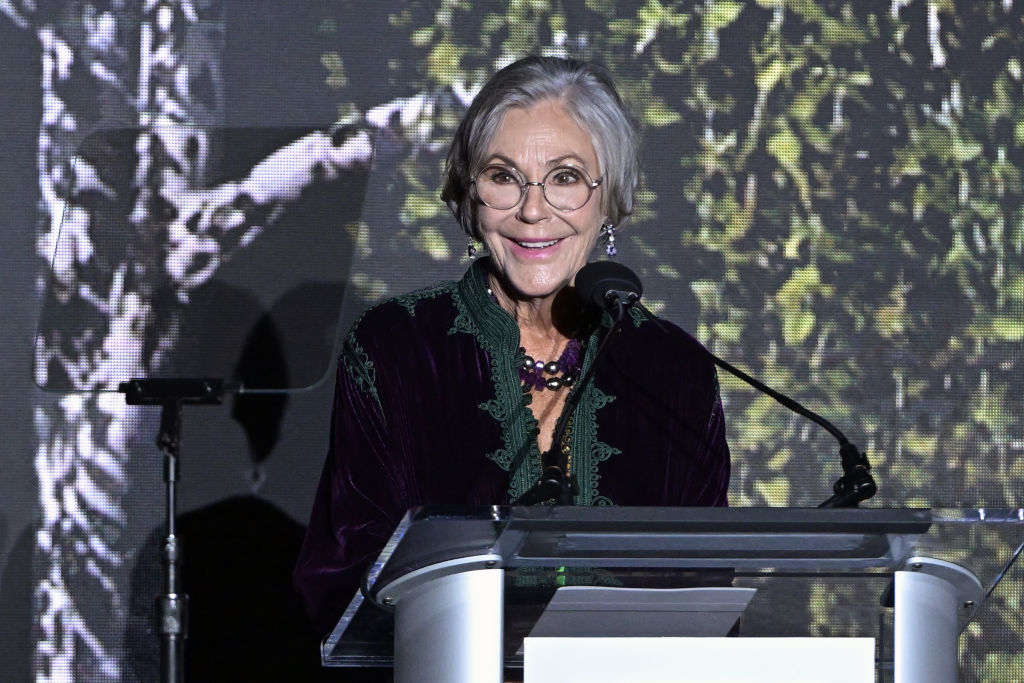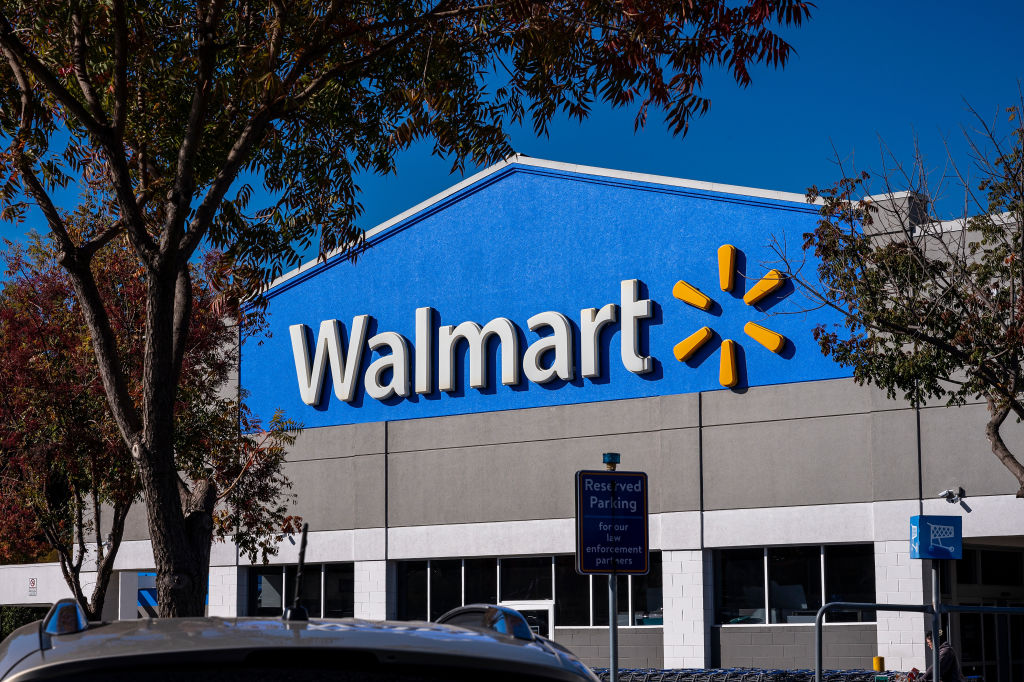Who is the richest woman in the world?
The richest woman in the world is Alice Walton, the billionaire heiress to American supermarket chain, Walmart. How did she make her billions?


Get the latest financial news, insights and expert analysis from our award-winning MoneyWeek team, to help you understand what really matters when it comes to your finances.
You are now subscribed
Your newsletter sign-up was successful
Want to add more newsletters?

Twice daily
MoneyWeek
Get the latest financial news, insights and expert analysis from our award-winning MoneyWeek team, to help you understand what really matters when it comes to your finances.

Four times a week
Look After My Bills
Sign up to our free money-saving newsletter, filled with the latest news and expert advice to help you find the best tips and deals for managing your bills. Start saving today!
While Selena Gomez reached billionaire status in 2024, she isn’t the richest woman in the world – neither is Taylor Swift nor Rihanna. The title is held by Alice Walton, the only daughter of Walmart’s founder Sam Walton.
According to Bloomberg’s Billionaire Index, Alice Walton has a net worth of $109 billion, making her the 15th richest person in the world. She’s not far behind billionaires Warren Buffett and Steve Ballmer.
Before Walton, L’Oréal’s owner Francoise Bettencourt Meyers was the richest woman in the world. Bettencourt Meyers had seen a surge in her fortunes after L’Oreal’s share price shot up 20% last year. However, slow demand for luxury goods in China has dented the value, paving the way for Walton to reclaim the top spot.
MoneyWeek
Subscribe to MoneyWeek today and get your first six magazine issues absolutely FREE

Sign up to Money Morning
Don't miss the latest investment and personal finances news, market analysis, plus money-saving tips with our free twice-daily newsletter
Don't miss the latest investment and personal finances news, market analysis, plus money-saving tips with our free twice-daily newsletter
But how exactly did Alice Walton amass her fortunes? We find out.
How Alice Walton became the richest woman in the world
Alice Walton is the daughter of the late Sam Walton, an American magnate best known for founding Walmart in 1945. The American supermarket chain is not only the world’s largest retailer, but it has also sat at the top of the Fortune 500, which has ranked the biggest US companies for more than a decade.
Sam Walton passed away in 1992, leaving his ownership of Walmart to his wife and children. This makes the Waltons the wealthiest family in the US, with an estimated net worth of $432.4 billion, according to Bloomberg.
The Waltons own about 46% of the stake in Walmart, and all three siblings – including Alice and her two brothers Jim and Rob, own more than 11% of the company through a family trust.
They have individually pocketed over $15 billion from stock sales and dividends over the years, according to Bloomberg, and are part of the $100 billion club. A surge in Walmart’s stock last year meant that the Walton trio added about $30 billion each to their net worths.
Unlike her siblings, Alice didn’t take an interest in serving on the Walmart board and instead chose to dedicate her life to curating art. When she was 11, she first bought a 25-cent print of Picasso’s Blue Nude in one of her father’s stores, where he worked before starting Walmart. Business Insider reports that she has a private collection that includes original works from artists like Andy Warhol, Norman Rockwell and Georgia O'Keefe.
Alice mainly spends her time serving as chair of the Crystal Bridges Museum of American Art, which she established in 2005. Her interest in art has helped her establish herself as a keen collector and philanthropist.
In 2011, the Walton Family Foundation donated $1.2 billion to the gallery, and another $20 million came from Walmart, which made admission free for all visitors. Alice formed the Alice L. Walton Foundation in 2017, promoting art, education, wellness and economic opportunity. The foundation has raised over $55 million for the Smithsonian’s planned American Women’s History Museum, $3 million in funding for the University of Central Arkansas’s fine arts program, and a $3.5 million grant to the Northwest Arkansas Food Bank.
In 2019, Walton established the Heartland Whole Health Institute, which works to expand access to holistic healthcare, reduce costs and address the US healthcare crisis. Her foundation is donating $350 million for speciality care, including new cardiac services and virtual care.
How has Walmart performed?

Walmart (NYSE: WMT) is an American multinational known for having everyday low prices and operates a network of discount department and grocery stores in the US and many other countries. It employs around 2.1 million people, most of whom are based in the US. Walmart shares hit an all-time high in June 2024, and, according to InvestingPro, its market capitalisation is now $647.96 billion, with a price-to-earnings ratio of 41.69.
The supermarket chain has a history of maintaining and even raising its dividend payments for decades, making it a favourite among long-term investors. In its Q2 FY25 earnings report in August, the group’s revenue was $169.3 billion – up 4.8% compared to the same period the year before.
The CEO Douglas McMillion said in the earnings call: “Our business outside the US continues to lift the total company in terms of sales and profit growth. Walmex [its Mexican and Central American Walmart division] had another strong quarter, and India Flipkart again delivered positive contribution margin, and PhonePe continues to deliver amazing growth in total payment volume.
“In China, strong membership trends in Sam's Club continued to drive double-digit sales growth, and about half of our sales there are digital. We continue to gain market share, including in general merchandise, and transaction counts and unit volume are up across markets.”
In November 2024, Investing.com reported that Alice sold a total of 924,000 Walmart shares, which generated around $74.2 million. The sale took place on 12 September, and share prices ranged between $79.4597 to $79.8742 per share.
Get the latest financial news, insights and expert analysis from our award-winning MoneyWeek team, to help you understand what really matters when it comes to your finances.

Oojal has a background in consumer journalism and is interested in helping people make the most of their money.
Oojal has an MA in international journalism from Cardiff University, and before joining MoneyWeek, she worked for Look After My Bills, a personal finance website, where she covered guides on household bills and money-saving deals.
Her bylines can be found on Newsquest, Voice.Cymru, DIVA and Sony Music, and she has explored subjects ranging from politics and LGBTQIA+ issues to food and entertainment.
Outside of work, Oojal enjoys travelling, going to the movies and learning Spanish with a little green owl.
-
 Should you buy an active ETF?
Should you buy an active ETF?ETFs are often mischaracterised as passive products, but they can be a convenient way to add active management to your portfolio
-
 Power up your pension before 5 April – easy ways to save before the tax year end
Power up your pension before 5 April – easy ways to save before the tax year endWith the end of the tax year looming, pension savers currently have a window to review and maximise what’s going into their retirement funds – we look at how